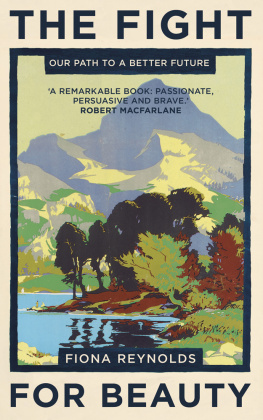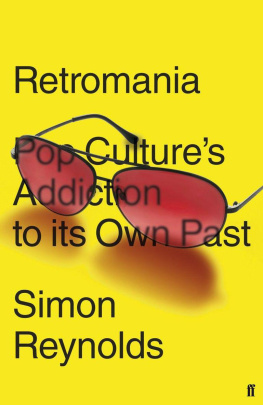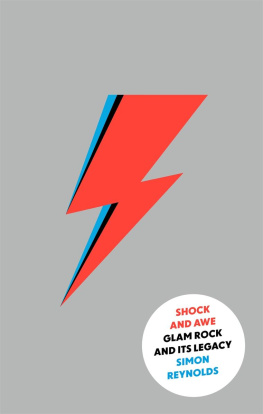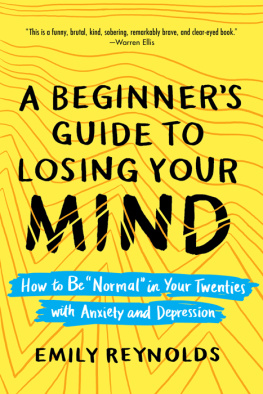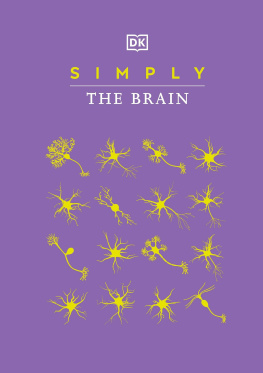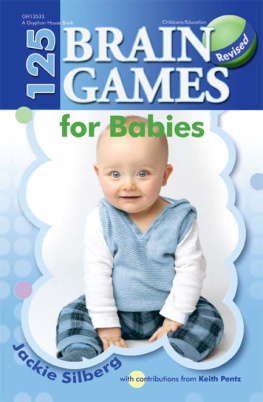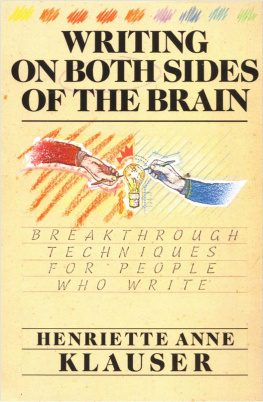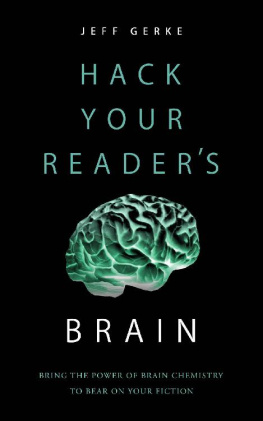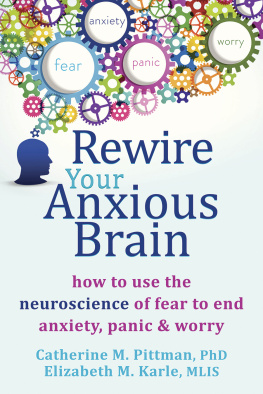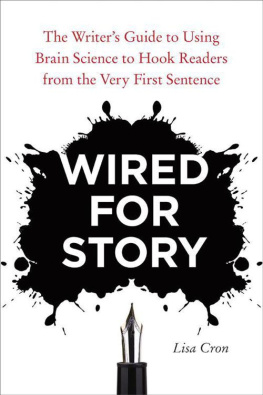Contents
Guide
Fire Up Your Writing Brain
How to Use Proven Neuroscience to Become a More Creative, Productive, and Successful Writer
Susan Reynolds

Cincinnati, Ohio
Fire Up Your Writing Brain. Copyright 2015 by Susan Reynolds. Manufactured in the United States of America. All rights reserved. No part of this book may be reproduced in any form or by any electronic or mechanical means including information storage and retrieval systems without permission in writing from the publisher, except by a reviewer, who may quote brief passages in a review. Published by Writers Digest Books, an imprint of F+W Media, Inc., 10151 Carver Road, Suite # 200, Blue Ash, OH 45242. (800) 289-0963. First edition.
For more resources for writers, visit www.writersdigest.com/ .
Distributed in Canada by Fraser Direct
100 Armstrong Avenue
Georgetown, Ontario, Canada L7G 5S4
Tel: (905) 877-4411
Distributed in the U.K. and Europe by F&W Media International
Brunel House, Newton Abbot, Devon, TQ12 4PU, England
Tel: (+44) 1626-323200, Fax: (+44) 1626-323319
E-mail:
Distributed in Australia by Capricorn Link
P.O. Box 704, Windsor, NSW 2756 Australia
Tel: (02) 4577-3555
ISBN-13:9781599639192

WritersDigest.com
Cincinnati, Ohio
I dedicate this book, as I do every book I write, to my children, Brooke and Brett Aved, because they are my raison d tre and the inspiration for me expending vast amounts of energy and focus on writingand they taught me a lot about life, passion, commitment, and growth. Thank you, my beloveds!
Acknowledgments
My eternal gratitude goes to Paula Munier, who has also been an inspiration and a dear friend for more than thirty years. Thank you to Writers Digest publisher Phil Sexton and his team, particularly Cris Freese who helped shape the work as my editor, but also to everyone behind the scenes, from the interior design, cover design, and salesour mutual pursuit of originality, creativity, and practicality made the book what it isand I appreciate what you do. Thanks to my online scribe tribeIndi Zeleny, John K. Waters, Mardeene Mitchell, Meera Lester, and Paula Munierwhose input is priceless, and also to my editing clients who entrust me with their work. I also thank my brothers, Jim and Roy Reynolds, my sister Rozanne Reynolds, and all my nieces and nephews who have long shared my personal journey and continue to inspire me. A huge thanks to Teresa Aubele-Futch, the brilliant neuroscientist who co-authored Train Your Brain to Get Happy and Train Your Brain to Get Rich with me, and offered her expertise on this book, as well. And, last, but never least, thank you Jan Berry-Kadrie, for opening my eyes to possibility and encouraging me to claim my talent, my ambition, and my passion for writing.
Introduction
At this very moment, some forty thousand neuroscientists around the world are focused on understanding the miraculous functions our brain performsone of which is the ability to achieve writing genius. In the last decade, these scientists confirmed that our brains continue to evolve, grow, and change throughout our lifetimesprovided we offer stimulation, specialized training, and rewards to motivate it.
Neuroscientists call this ability to change plasticity and the ability to generate, regenerate, and reassign existing neurons neurogenesis. The way that our brains perform is literally mind-boggling: You have the worlds greatest supercomputer, with over 20 billion brain cells (neurons) and the possibility of forming 100 trillion synapses (neuronal connections) at your disposal. And heres the kicker: In many cases, the types of connections that form are up toyouthey are guided by your experiences, your decisions, and your desires. If you program your brain mindfully and support it in its quest to fulfill your chosen pursuit, your brain will happily aid you in becoming more creative, more productive, and more successfulin whatever form of writing you pursue.
In Fire Up Your Writing Brain, we will begin by discussing aspects of neuroscience related to creativity and writing, designed to bring your full consciousnessand appreciationto the vast possibility your brain offers. We move briskly through these basics, and then spend the next eleven chapters discussing specific ways you can protect, nurture, stimulate, program, and reward your brain to generate and maximize its inherent writing genius.
Youll learn:
- how to identify, reinforce, and maximize what attracted your brain to writing
- if youre a top brain or bottom brain writer, and why it matters
- how to prepare, program, and tap into your brains vast neuronal forest to achieve writing genius
- how to fire up a lagging brain and propel it into overdrive when you need it
- how to build cognitive templates that accelerate your learning curve
- specific, step-by-step strategies for brainstorming brilliant story, character, and plot ideasfrom beginning to end
- how to use metacognition and global ignition to boost creativity and perfect your craft
- how to hardwire your brain for endurance and increased productivityeven while youre sleeping
- how to conquer cognitive inertia and train your brain to go with the flow
- how to conceive, create, and craft your work for maximum success
Throughout the book, each chapter includes specific ways to fire up your writing brain, as well as a Train Your Writing Brain exercise (specific writing, cognitive, and creative exercises) designed to expand your creativity, and program and support your brain in becoming a fantastic storyteller. Although most references are to novel writing, the same principles apply for all storytellingwhether memoir, play, screenplay, poem, or song.
To accommodate your writing process, we address the beginning, the middle, and the end stages of writing and crafting your story, in a way that mirrors the natural structure and progression of storytellingwhich your brain will appreciate!
Throughout, youll learn concrete and applicable strategies for engaging your brains writing genius in conceiving, creating, and crafting written work that will boost your creativity, productivity, and success. So, lets get this journey underwayyour talented and receptive brain stands ready to do your bidding.
Chapter 1
What Your Writing Brain Can Do For You
A writer is someone who can make a riddle out of an answer.
Karl Kraus
In case you hadnt noticed, the field of neuroscience is everything these days. Not only is the study of the human brain the fastest moving, most complex frontier in physical science, there are amazing leaps forward in understanding how the human brain does what it does so welland where and why wires get crossedoccurring across the world. International scientists are currently focused on figuring out how the brains massive networking system worksfrom mapping a single connection between two neurons (a synapse) to mapping brain regions trillions of times larger.
The brain is, after all, the most complex piece of organized matter in our entire known universe, consisting of 86 billion (some still say 100 billion) neurons (and ten to fifty times more helper cells, known as glia). All neurons have a central body, or nucleus, where cellular metabolism takes place, but they also have incredibly long, stretched-out arms (known as axons) and thousands of smaller arms (known as dendrites). Tiny electrical currents undulate along the neuron's surface. When a stimulus occurs (inside or outside the human body), or the need to send a message arises, neurotransmitters are released to help the neuron translate the jolt of electric current, or spike, into a message that can pass across a synapse and into another neuron, where another spike begins. Each neuron forms as many as 15,000 synapses, giving your brain the potential to form some 100 trillion synapses.




